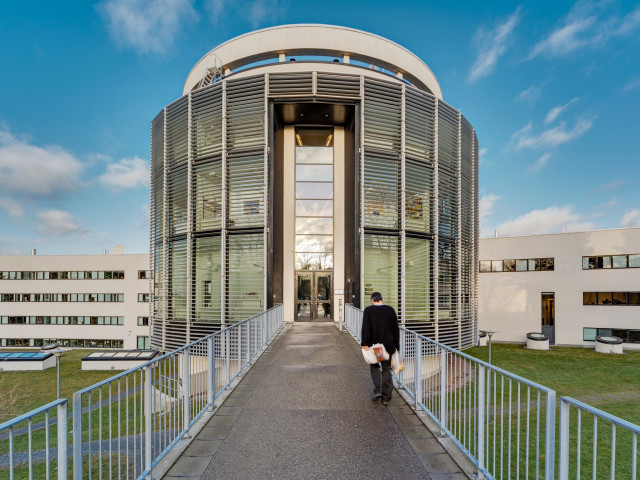A couple of accelerator laboratories are presented and visited. Elements of modern accelerator techniques are also presented. In addition lectures on a few experiments of atomic, molecular, nuclear and particle physics character are given by researchers active in these fields of physics. Application of nuclear methods to solid state physics will be briefly covered.
SH2307 Physics at Accelerators 6.0 credits
This course has been discontinued.
Decision to discontinue this course:
No information inserted
Information per course offering
Course offerings are missing for current or upcoming semesters.
Course syllabus as PDF
Please note: all information from the Course syllabus is available on this page in an accessible format.
Course syllabus SH2307 (Autumn 2007–)Content and learning outcomes
Course contents
Intended learning outcomes
The course is a continuation of SH2306 with emphasis on modern physics studied at accelerators. The aim is to give insight in this kind of physics but also to show how recent development of accelerator techniques makes new physics experiments possible.
Literature and preparations
Specific prerequisites
Recommended prerequisites: It is of value to have basic knowledge in modern physics, i.e. courses like Subatomic Physics (SH2101), Experimental Particle Physics (SH2201), Nuclear Physics (SH2301), Quantum Physics etc.
Literature
Techniques for Nuclear and Particle Physics Experiments. (W.R. Leo, Springer Verlag).
Atomic and Quantum Physics. (H. Haken and H.C. Wolf, Springer Verlag).
Introductory Nuclear Physics. (Kenneth S. Krane, John Wiley & Sons).
Acceleratorteknik (S Rosander, Inst. f. acc.teknik, KTH, in Swedish).
Examination and completion
Grading scale
Examination
- SEM1 - Seminar, 1.5 credits, grading scale: P, F
- TEN1 - Examination, 1.5 credits, grading scale: P, F
- LAB1 - Laboratory Work and Study Visit, 3.0 credits, grading scale: P, F
Based on recommendation from KTH’s coordinator for disabilities, the examiner will decide how to adapt an examination for students with documented disability.
The examiner may apply another examination format when re-examining individual students.
If the course is discontinued, students may request to be examined during the following two academic years.
Other requirements for final grade
Active participation in lectures and one small oral or written exam (TEN1; 1,5 university credits). Passed labs and participation in study visits to the Manne Siegbahn and The Svedberg laboratories (LAB1; 3 university credits). Each participant should give one 20 - 30 minute lesson about an accelerator based experiment (SEM1; 1,5 university credits).
Examiner
Ethical approach
- All members of a group are responsible for the group's work.
- In any assessment, every student shall honestly disclose any help received and sources used.
- In an oral assessment, every student shall be able to present and answer questions about the entire assignment and solution.
Further information
Course room in Canvas
Offered by
Main field of study
Education cycle
Supplementary information
Given if there are enough interest. Please contact course administrator.